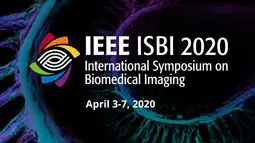Prediction of Language Impairments in Children Using Deep Relational Reasoning with DWI Data
Soumyanil Banerjee, Ming Dong, Min-Hee Lee, Nolan O'Hara, Eishi Asano, Jeong-Won Jeong
-
Members: FreeSPS
IEEE Members: $11.00
Non-members: $15.00Length: 15:53
03 Apr 2020
This paper proposes a new deep learning model using relational reasoning with diffusion-weighted imaging (DWI) data. We investigate how effectively and comprehensively DWI tractography-based connectome predicts the impairment of expressive and receptive language ability in individual children with focal epilepsy (FE). The proposed model constitutes a combination of a dilated convolutional neural network (CNN) and a relation network (RN), with the latter being applied to the dependencies of axonal connections across cortical regions in the whole brain. The presented results from 51 FE children demonstrate that the proposed model outperforms other existing state-of-the-art algorithms to predict language abilities without depending on connectome densities, with average improvement of up to 96.2% and 83.8% in expressive and receptive language prediction, respectively.



